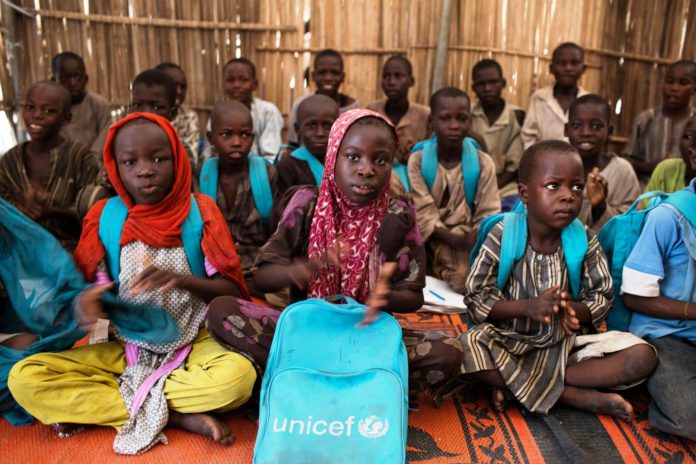
The outgone year 2017 saw children in conflict zones around the world come under attack at a shocking scale all throughout the year.
The United Nations Children’s Fund, UNICEF, said parties to conflicts “blatantly disregarded” international laws designed to protect the most vulnerable.
“Children are being targeted and exposed to attacks and brutal violence in their homes, schools and playgrounds,” said Manuel Fontaine, UNICEF Director of Emergency Programmes.
“As these attacks continue year after year, we cannot become numb. Such brutality cannot be the new normal.”
In conflicts around the world, children have become frontline targets, used as human shields, killed, maimed and recruited to fight.
Rape, forced marriage, abduction and enslavement have become standard tactics in conflicts from Iraq, Syria and Yemen, to Nigeria, South Sudan and Myanmar.
In some contexts, children abducted by extremist groups experience abuse yet again upon release when they are detained by security forces.
Millions more children are paying an indirect price for these conflicts, suffering from malnutrition, disease and trauma as basic services – including access to food, water, sanitation and health – are denied, damaged or destroyed in the fighting.
The year in bits of violence
Throughout 2017:
- In Afghanistan, almost 700 children were killed in the first 9 months of the year.
- In the Central African Republic, after months of renewed fighting, a dramatic increase in violence saw children being killed, raped, abducted and recruited by armed groups.
- In the Kasai region of the Democratic Republic of the Congo, violence has driven 850,000 children from their homes, while more than 200 health centres and 400 schools were attacked. An estimated 350,000 children have suffered from severe acute malnutrition.
- In northeast Nigeria and Cameroon, Boko Haram has forced at least 135 children to act as suicide bombers, almost five times the number in 2016.
- In Iraq and Syria, children have reportedly been used as human shields, trapped under siege, targeted by snipers and lived through intense bombardment and violence.
- In Myanmar, Rohingya children suffered and witnessed shocking and widespread violence as they were attacked and driven from their homes in Rakhine state; while children in remote border areas of Kachin, Shan, and Kayin states continued to suffer the consequences of ongoing tensions between the Myanmar Armed Forces and various ethnic armed groups.
- In South Sudan, where conflict and a collapsing economy led to a famine declaration in parts of the country, more than 19,000 children have been recruited into armed forces and armed groups, and over 2,300 children have been killed or injured since the conflict first erupted in December 2013.
- In Somalia, 1,740 cases of child recruitment were reported in the first 10 months of 2017.
- In Yemen, nearly 1,000 days of fighting left at least 5,000 children dead or injured, according to verified data, with actual numbers expected to be much higher. More than 11 million children need humanitarian assistance. Out of 1.8 million children suffering from malnutrition, 385,000 are severely malnourished and at risk of death if not urgently treated.
UNICEF calls on all parties to conflict to abide by their obligations under international law to immediately end violations against children and the targeting of civilian infrastructure, including schools and hospitals.
UNICEF also calls on States with influence over parties to conflict to use that influence to protect children.
























